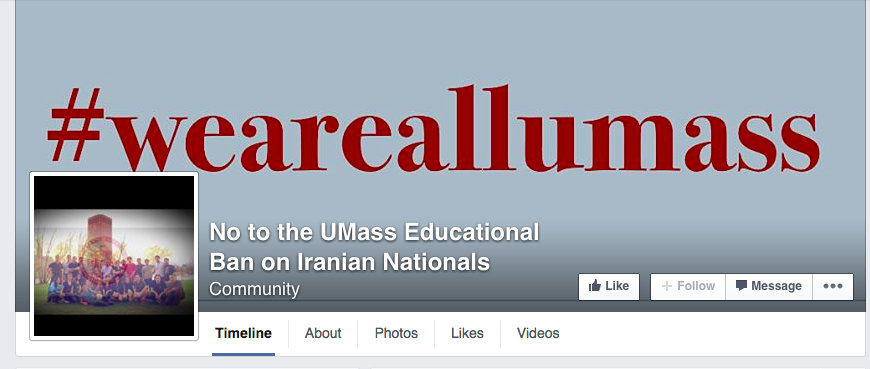
UMass decided to reverse a policy prohibiting Iranian citizens from taking graduate classes in chemical, computer, and mechanical engineering, days after implementing the ban.
“We have always believed that excluding students from admission conflicts with our institutional values and principles,” Michael Malone, vice chancellor for research and engagement, said in a statement. “It is now clear, after further consultation and deliberation, that we can adopt a less restrictive policy.”
The decision comes after discussions with the State Department, according to the university.
The University of Massachusetts at Amherst announced earlier this month it will stop allowing Iranian citizens to enroll in certain engineering and science programs, citing a two-year-old U.S. policy.
The university claims to be complying with a 2012 U.S. law that prohibits Iranian nationals from studying in the United States if they plan to work in nuclear or energy fields in Iran. This is an effort to stop the Iranian government from developing nuclear weapons.
The law reads:
The Secretary of State shall deny a visa to, and the Secretary of Homeland Security shall exclude from the United States, any alien who is a citizen of Iran that the Secretary of State determines seeks to enter the United States to participate in coursework at an institution of higher education…to prepare the alien for a career in the energy sector of Iran or in nuclear science or nuclear engineering or a related field in Iran.
Typically, it is left to the State Department, which issues visas, and the Department of Homeland Security, which investigates threats, to enforce the law.
But UMass, in a statement, said compliance was becoming difficult. And to avoid civil and criminal penalties "that would impact faculty, staff, and students, the university will no longer admit Iranian national students to specific programs in the College of Engineering and in the College of Natural Sciences." The statement does not clarify what the penalties are.
Classes within those colleges include physics, chemistry, microbiology, polymer science, chemical engineering, electrical and computer engineering, and mechanical and industrial engineering.
A spokesperson for the State Department told BuzzFeed News there is no U.S. law that prohibits qualified Iranian nationals from coming to the United States to pursue an education in science and engineering. Each application is reviewed on a case-by-case basis, the spokesperson said.
"We will reach out to UMass Amherst to discuss the specific decision, and are available to answer questions from other academic institutions regarding implementation of the relevant laws," the spokesperson said.
Student groups are criticizing the policy, arguing it conflicts with the university's values that prohibit discrimination.

In a Facebook group titled "No to the UMass Educational Ban on Iranian Nationals," students are asking for the reversal of the unjust implementation of the policy.
"We always felt like an integral part of the university community. Now we're just kind of confused," Shirin Hakim, an Iranian-American who graduated last year and spoke on behalf of Iranian students still on campus told NBC News. "We want an explanation for all this, and we don't think it should be tolerated, because it's clearly discriminatory against Iranian nationals."
The statement released by UMass said the university recognizes that students from Iran "regard this as unfortunate," and that the policy conflicts with the school's institutional values and principles.
"However, we must to adhere to the law and hence have instituted this policy to ensure that we are in compliance," according to the statement.
